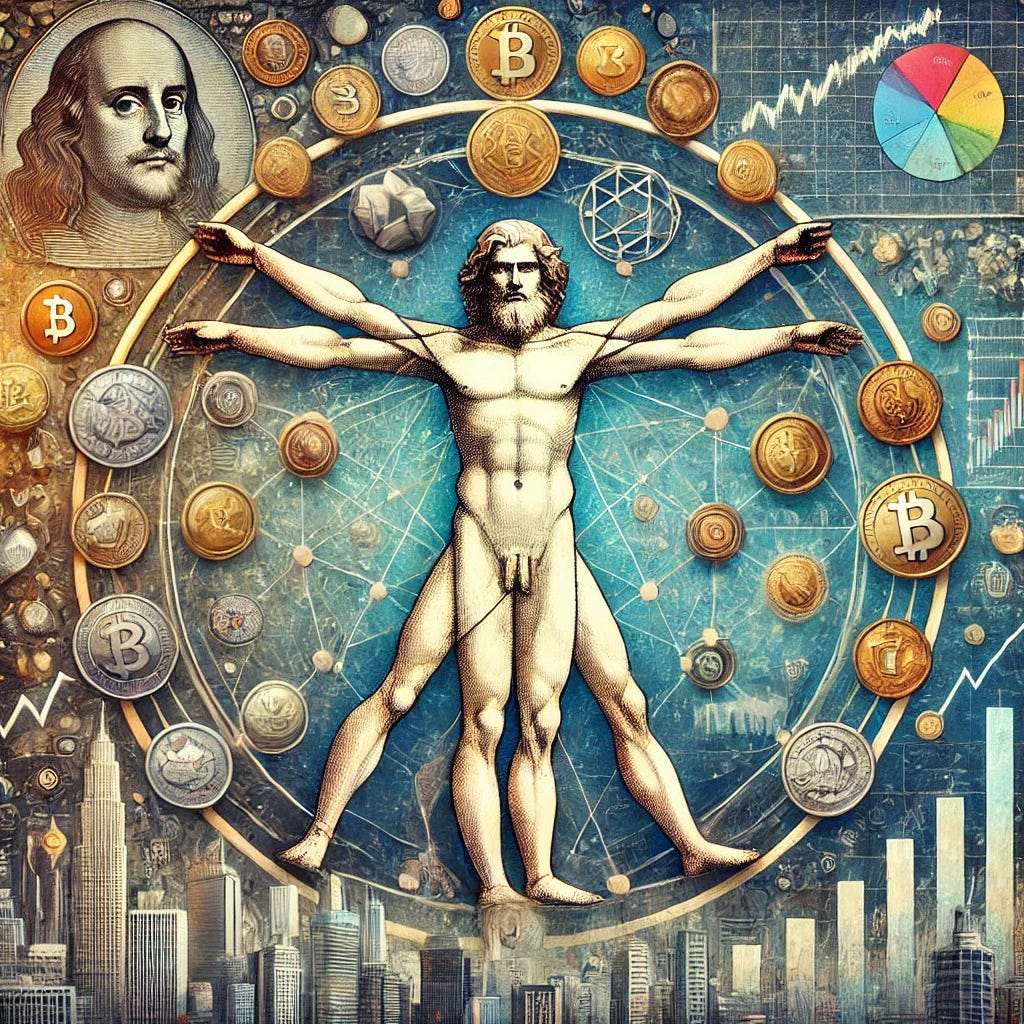This essay written by Alain de Benoist under the pseudonym “Robert de Herte,” critiques the dominance of materialism and economic primacy in modern society, arguing that both liberalism and Marxism dissolve the spiritual essence of humanity by reducing life to material concerns. It describes how the focus on material wealth has eroded deeper values, prioritizing economic autonomy and individual gain over collective identity and cultural heritage. Egalitarianism, while ostensibly eliminating inequalities, merely levels society downward, dismantling hierarchical structures that once preserved order and meaning. The result is a dehumanized, insatiable Homo oeconomicus, whose pursuit of material satisfaction leaves him disillusioned and unfulfilled. The essay calls for restoring the primacy of the spiritual and political over the economic, rejecting the reign of quantity in favor of a society that fosters true identity, purpose, and happiness.
This essay was initially published in Éléments no. 28-29, March 1979. It was also featured in the text “Pour une renaissance culturelle” (For a Cultural Renaissance).
Translated by Alexander Raynor
We are now in the era of Homo oeconomicus. A basic observation, yet one whose full scope escapes many of those who make it. And its scope is indeed vast. No longer do we ask: Who is he? Or what is he worth? Instead, we ask: How much is he worth?
For it is now understood that happiness is merely a matter of material goods. Even the value of family property is now reduced solely to its monetary worth. Everything is for sale; everything can be bought: memories and honor included. The last man, described by Nietzsche, keeps speaking: “Love? Creation? Desire? Star? What is that? Thus asks the last man, and he blinks. The earth has become smaller, and upon it hops the last man, who makes everything small... We have invented happiness, say the last men, and they blink.”
The “law of the market” — that is, the law of merchants — has supplanted the imperatives of national sovereignty, the preservation of heritage, cultural rootedness, and the transmission of legacy. Everything can be handed over to the “highest bidder,” to whoever puts the most on the table. Wealth that cannot be traded or sold is deemed worthless. Man himself is now worth only as much as the things he owns.
Man is becoming “technomorphized.” He, too, is becoming a thing. We even know, moreover, the value of a human life: its variations depend solely on socio-economic status. Short-term material profitability dictates our actions; it determines our choices. Within “profitable” lies the idea of a pension: the ideal of small, elderly lives.
When efforts are made to boost birth rates, the argument put forth is that it is necessary “to fund pensions.” No other motivation could be heard or understood.
Materialism, inherent to both liberalism and Marxism, is ultimately nothing more than the dissolution of the inner soul. It signifies the disappearance of actions not motivated by personal interest or immediate existence. It entails the rejection of an "other world" shaped by the eternity of memories. It is the dissolution of that which transcends us, which could constrain us and, in constraining us, give us form.
The reign of quantity, to borrow an expression from René Guénon, is also this: hic et nunc—here and now, and nothing more.
The fall from the spiritual to the material, from soul to mind, from mind to body: this is the classic trajectory of all decadence. The era of Homo oeconomicus is tied to the rise of the bourgeoisie—not so much as a class but as a type of man and a system of values. (A simple distinction: aristocrats strive to preserve what they are, while bourgeois seek to preserve what they have.)
Egalitarianism, let us recall, only equalizes downward. This collapse of everything elevated and differentiated into what is homogeneous and undifferentiated is, in fact, the inversion of hierarchies. To place the "third function" on the same level as the other two does not bring everyone onto equal footing; it overturns the hierarchy of ranks and orders.
Thus, the "third function" inevitably comes to dominate the first. In clearer terms: once the economic sphere emancipates itself from the political, it inevitably seeks to subsume and dominate it.
Thus, we arrive at the point where egalitarianism eliminates inequalities... except those that are truly questionable. The guarantees provided in the name of political freedom are taken back in the name of economic freedom. Abstract rights are granted to Man in general, rights that particular men cannot practically exercise. This must not be forgotten to avoid many misunderstandings.
But this also represents a failure. No system—whether liberal or socialist—founded on complete autonomy and the primacy of the economic can bring general satisfaction. Homo oeconomicus exists, but he is not a happy man. The fulfillment of his material needs, confined to a single sphere, does not soothe his desire; on the contrary, it amplifies it, making it both insatiable and disillusioned.
Any conception of society based on well-being, on welfare, cannot succeed in fostering happiness. Happiness stems from man's appropriation of what is truly his own, from the development of a specific personality within a collective identity. Meanwhile, the commercialized, homogenizing, deculturating, and depersonalizing society is built only by the aggregation of quantity-men—that is, on the ruins of differences and individual personalities.
We do not hold contempt for the economy. The economy is not the devil. Moreover, the "third function" is as necessary as the others. It is necessary in its proper place. The three functions are complementary; they are inseparable. But they must also be hierarchized: the social should depend on the economic, the economic on the political. And sovereignty must be justified by the forms of authority that render it legitimate.
Restoring the first function to its rightful place, returning the third to its own, ending the "reign of quantity," the conception of the economy-as-destiny, and the "social" as the raison d'être of politics—this is all one and the same task.






The three functions is a good compact concept.